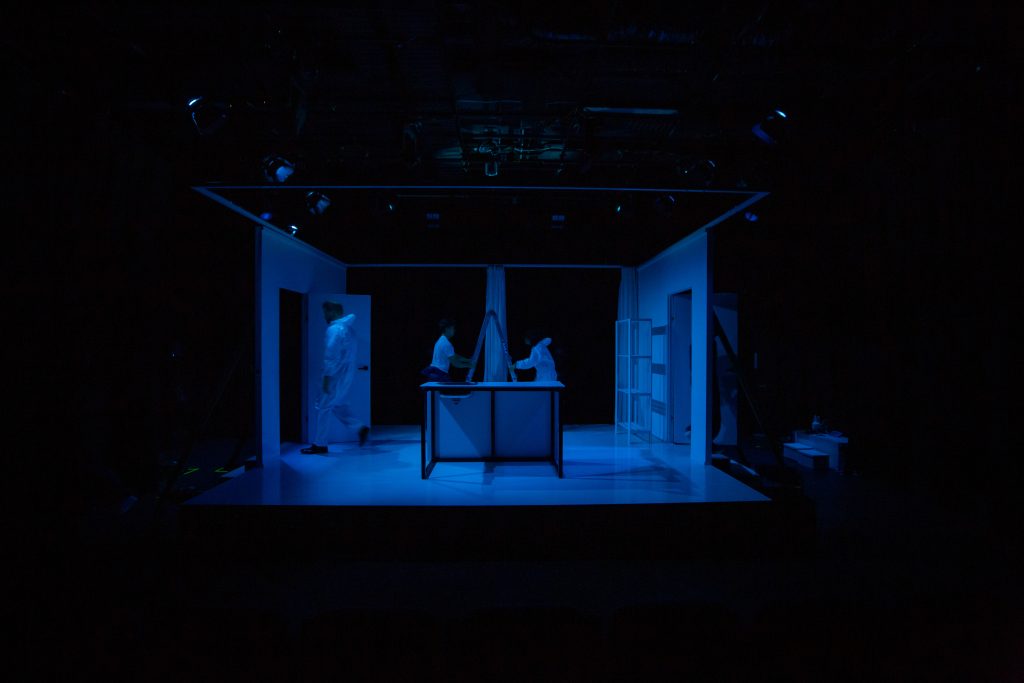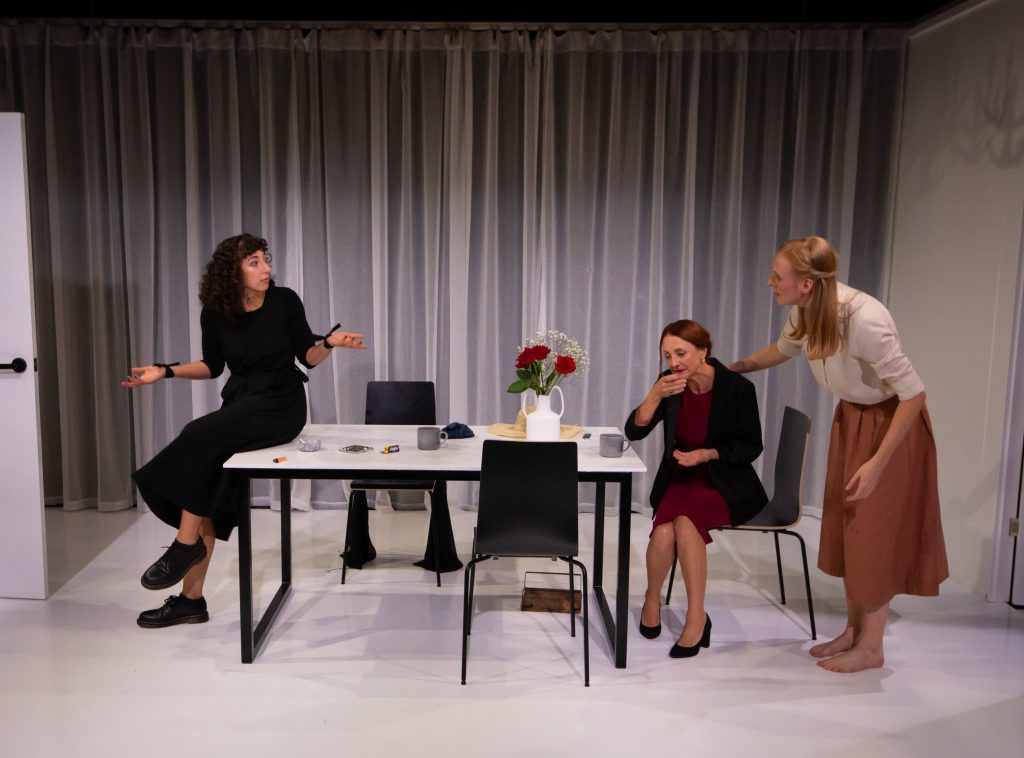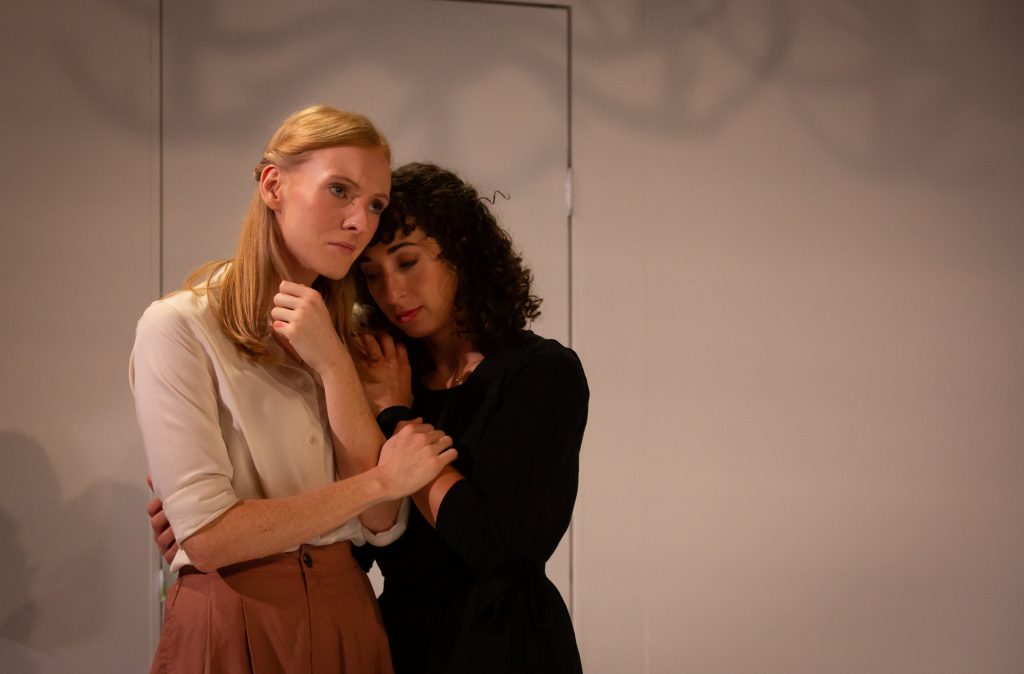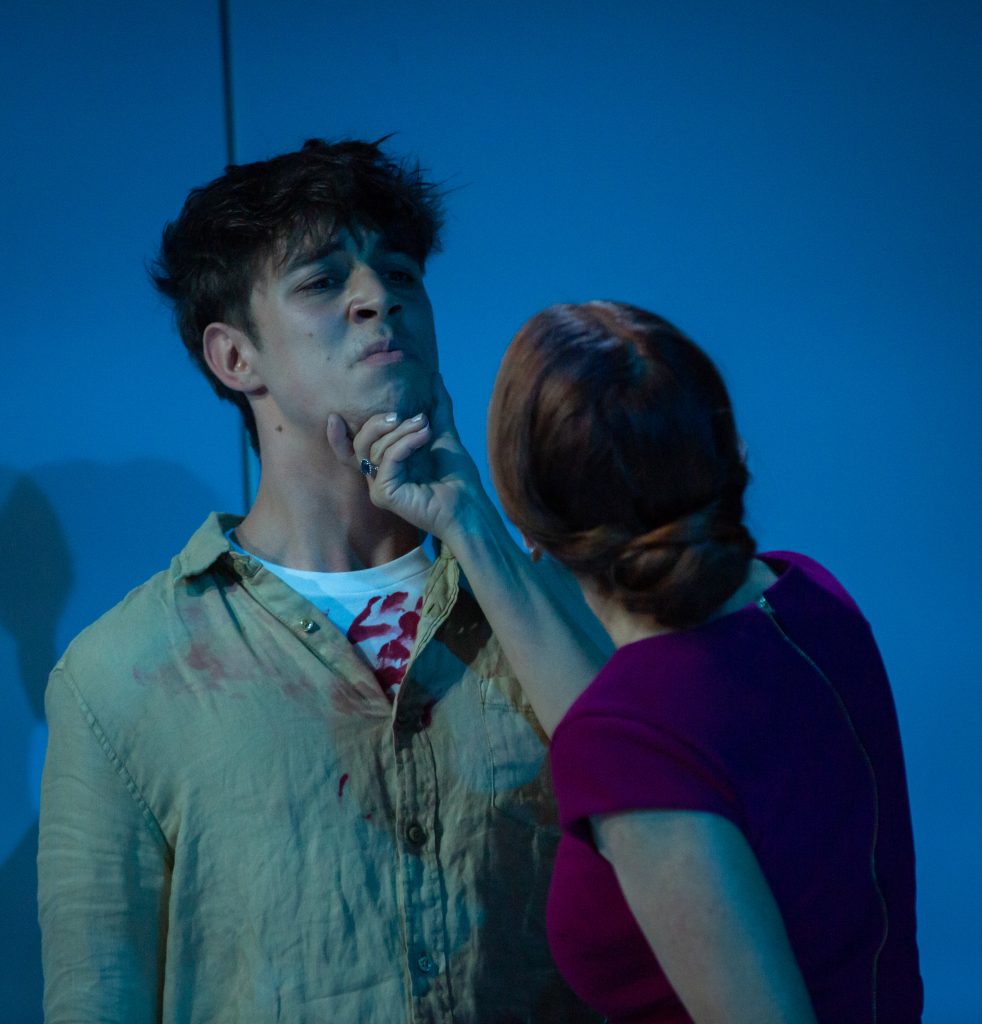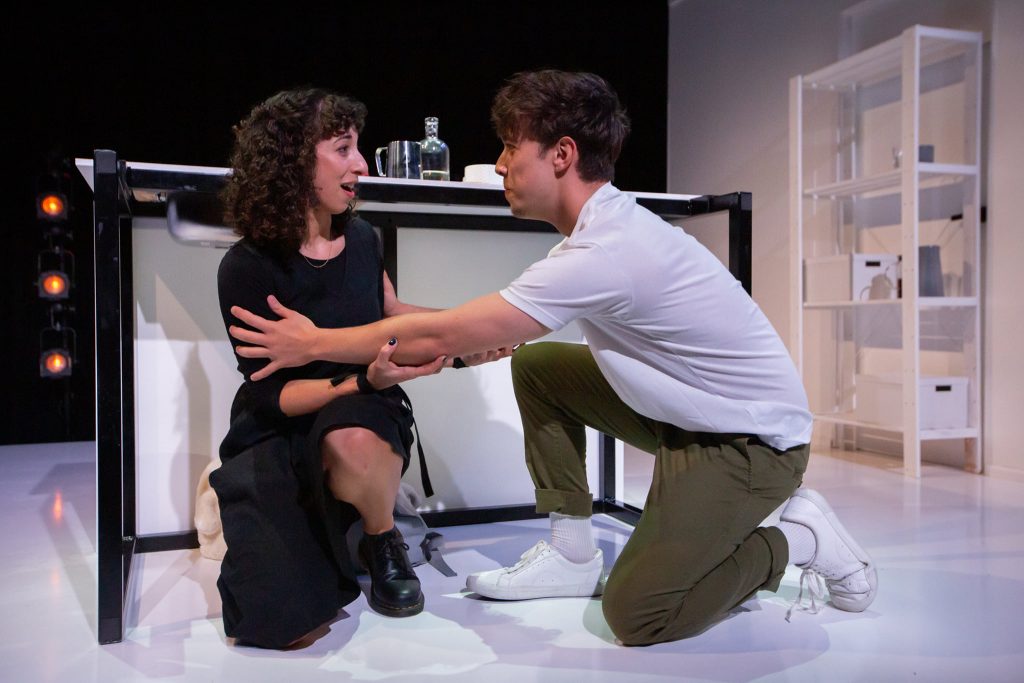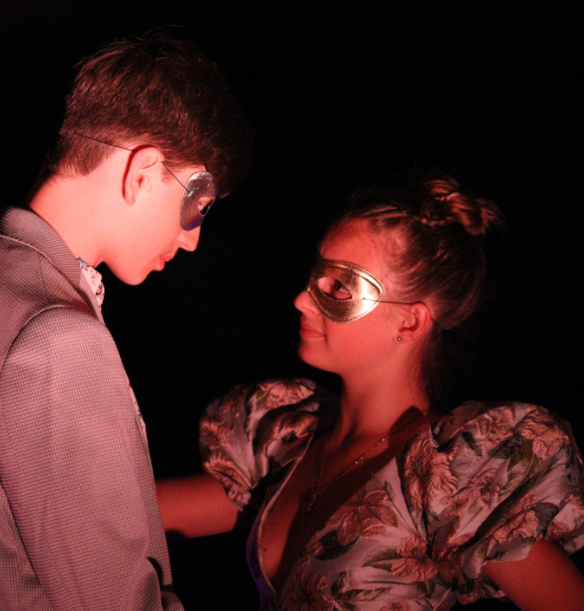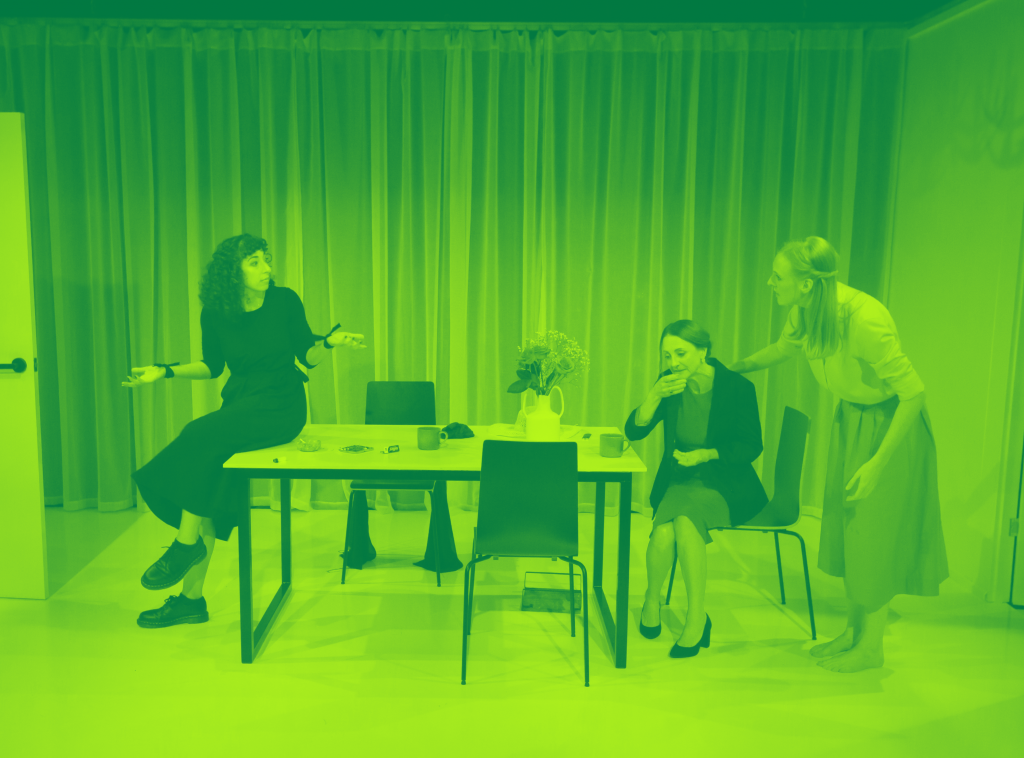
‘Elektra/Orestes’ // The Hive Collective and Metro Arts
‘Elektra/Orestes’ was electrifying.
A broken royal family, a post-dramatic flip, and a whole lot of blood. These were key ingredients in The Hive Collective’s contemporary take on the blood-soaked and brooding Greek myth of Elektra and Orestes.
This is the second of three productions by The Hive Collective taking the Metro Arts stage this year and is directed by co-artistic director Heather Fairbairn. In this bold production, Fairbairn and the rest of the team certainly find the punch, playfulness and menace in Jada Alberts and Anne-Louise Sarks’s play.
Originally performed at Belvoir St Theatre in 2015, and directed by co-writer Sarks, the play brings modern humour and contemporary theatrical experimentation to the bloody emotional fireworks of the original myth immortalised by Sophocles and Euripides, among others. In this version, we find a caustic, gothic Violette Ayad as Elektra; brooding, plotting and clashing with family as she awaits the return of her banished brother, Orestes. Sent away for his own safety following the murder of his and Elektra’s father Agamemnon, Orestes’s vengeful return is restlessly awaited. Elektra seeks to build an ally in her sister Kyrsothemis, against her murdering mother Klytemnestra and her usurping partner, Aigisthus. With big scores to settle and some dark twists along the way, the wheels of tragedy are set firmly into motion.
Walking into the New Brenner Theatre, the striking and ominous design by Sarah Winter is eye-catching. Raised and entombed by a slightly see-through curtain, the fishbowl-like, one-room set creates the effect of trapping the play’s characters. Alongside the sporadic sound of a ticking clock, the set design seems to highlight the inevitability of the impending tragedy. Sound design and composition by Julian Starr is truly foreboding and inventive; from bleak, blared horns to crackling electronic transition pieces and sonic jump scares. Highlights of the exciting lighting design by Christine Felmingham include exhilarating on-set flashing in key moments, and the low-lit but detailed design used in a stunning but brief full-cast movement piece.
This utilisation of the full capabilities of set and sound design and confident experimental inclination feels in-communication with the theatre of contemporary Europe, which is no surprise considering Fairbairn’s experience across the continent and the U.K. At 70 minutes with no interval, the play felt lean and dynamic, driven by that experimental sensibility. Without going into spoilers, a well-executed mid-show shift flips the story on its head and takes the momentum of this change-up into the finale. Under Fairbairn’s direction, the rules and boundaries of the production shift here, and the audience is seamlessly brought into a new perspective.
The cast remained focused on the core desires of their characters throughout the performance and built effectively towards a big finish. As the play’s emotional centre, Elektra, Ayad is both funny and forceful. Finding an unexpected balance between sarcastic goth and driven tragic Greek heroine, she brings a tone and energy to the character that is truly contemporary, bolstered by Alberts and Sarks’s witty writing. Caroline Dunphy is haunted but stubborn as Klytemnestra, battling her daughter and Tate Hinchy as an intense, conflicted Orestes. Tatum Mottin is also convincing as the fence-sitting Kyrsothemis, while Marcus Osborn brings a smarmy, nasty Aigisthus who is always fun to watch.
The final scenes are thrilling and emotionally affecting, and a testament to the well-combined design elements and committed acting. While in some earlier scenes, the stakes weren’t as clear, the concluding exchanges and image drive home the cost of the intergenerational family conflict on these characters. ‘Elektra/Orestes’ is given exciting, slick treatment at the hands of Fairbairn and The Hive Collective. The show is well worth catching at Metro Arts for your fill of Greek myth, Australian writing, and cutting-edge staging.
‘Elektra/Orestes’ runs until Saturday, 13 March at Metro Arts. For more information, visit the Metro Arts website.
Photography by Stephen Henry




